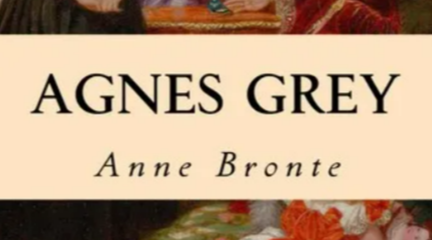Chapter XXII — The Visit
byChapter XXII — The Visit begins with Agnes arriving at Ashby Park, where the grandeur of the estate immediately reveals the cost of Rosalie’s ambition. The carefully maintained grounds, imposing mansion, and luxurious decor symbolize the height of material achievement, yet Agnes senses a quiet discomfort beneath the surface. Rosalie, once spirited and flirtatious, now carries herself with a polished indifference that thinly veils dissatisfaction. Her tone alternates between pride in her wealth and subtle hints at disillusionment, creating a contrast between external success and internal struggle. Agnes, with her observant nature, perceives the emotional distance that wealth cannot bridge.
The conversation between Agnes and Rosalie is rich with unspoken truths. Rosalie flaunts her possessions and speaks of her social engagements, but her words often trail into complaints about servants, her husband, or the exhausting duties of a lady of status. There’s an irony in how Rosalie once longed for this life, yet now finds it stifling and hollow. Agnes listens patiently, offering neither envy nor judgment, only quiet sympathy and restrained concern. Through these interactions, the emotional toll of Rosalie’s choices becomes evident—she has gained prestige but lost a sense of self and emotional fulfillment.
Their visit to the nursery highlights another layer of Rosalie’s discontent. While she fulfills her duties as a mother in name, there is a lack of genuine maternal connection, as if the child is more of a social accessory than a source of joy. Her remarks, often dismissive or mechanical, further illustrate the emotional vacuum within her carefully curated life. Agnes observes this with quiet sorrow, recognizing that Rosalie’s pursuit of status has come at the expense of sincere human bonds. Her detachment from the child mirrors her emotional distance from everything not rooted in appearance and societal expectation.
Rosalie’s treatment of her husband reveals a brittle, strained relationship. Though Sir Thomas is polite and reserved, his interactions with Rosalie are tinged with coldness, suggesting a marriage founded on convenience rather than affection. Rosalie’s occasional jabs and complaints suggest that she feels trapped, yet she remains unwilling to admit her own role in crafting this reality. The conversation is marked by subtle power struggles and unspoken resentment. Agnes, seated quietly in their midst, discerns these nuances and reflects silently on the cost of such an arrangement. Her internal narrative doesn’t mock Rosalie—it mourns the loss of potential in a woman once full of vitality.
Agnes inquires after Mr. Weston, and Rosalie’s indifferent reply contrasts sharply with Agnes’s internal interest. Rosalie’s flippant mention of his new position and location serves as a reminder of how lightly she holds people who don’t contribute to her social ascent. Yet for Agnes, this small update carries weight—proof that Mr. Weston continues on his path, and hope that their own paths might cross again. This moment encapsulates the emotional divide between the two women: Agnes values connection, while Rosalie pursues reputation. Each woman stands as a reflection of the choices available to them, shaped by different priorities and outcomes.
As the visit draws to a close, Agnes walks away with a clearer understanding of what Rosalie has gained—and what she has lost. Ashby Park, for all its beauty and splendor, feels like a gilded cage, with its mistress more confined than empowered. Agnes, though materially modest, is emotionally freer. She recognizes that true contentment lies not in opulence but in authenticity, service, and emotional truth. Her reflections underscore one of the novel’s central themes: that a life shaped by virtue and quiet dignity offers a deeper, more lasting fulfillment than one built on ambition and appearance alone.
This chapter stands as a subtle but powerful critique of Victorian ideals surrounding wealth, marriage, and feminine success. Through Agnes’s gentle but penetrating observations, Anne Brontë invites readers to question the cost of social ambition and to recognize the quiet strength in moral clarity and emotional integrity. Rosalie becomes a symbol of the price women pay for upward mobility in a society that equates value with status, while Agnes represents an alternative rooted in introspection and compassion. In this contrast, the novel’s message becomes clear: not all success is equal, and not all gilded lives are content.

